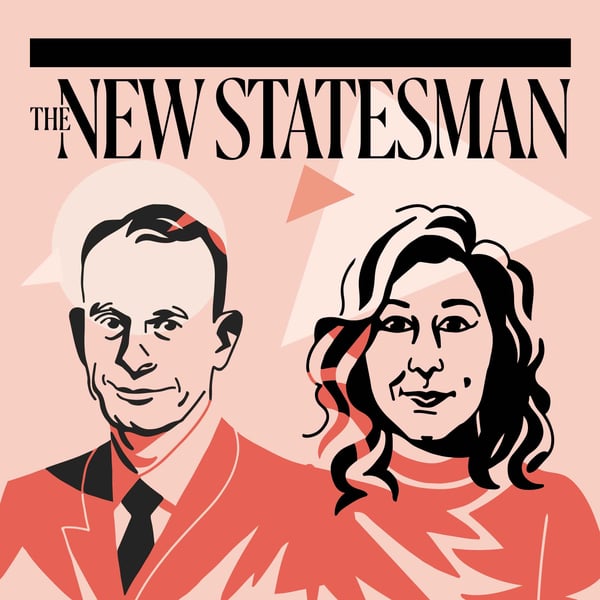IQ fetishism, in Silicon Valley and beyond
The New Statesman | UK politics and culture
The New Statesman
4.4 • 1.4K Ratings
🗓️ 25 September 2023
⏱️ 29 minutes
🧾️ Download transcript
Summary
Where does the concept of IQ fetishism originate? And why has it resurfaced in contemporary discussions, particularly within the tech-right movement? Join historian Quinn Slobodian as he discusses how IQ-based hierarchies have influenced societal perceptions and policies and the potential societal consequences and divisions resulting from the prevalence of such thinking.
The host for this episode is senior editor for China and global affairs, at the New Statesman.
You can read Quinn Slobodian's full piece The rise of the new tech right here.
Download the New Statesman app:
iOS: https://apps.apple.com/gb/app/new-statesman-magazine/id610498525
Android: https://play.google.com/store/apps/details?id=com.progressivemediagroup.newstatesman&hl=en_GB&gl=US
Subscribe to the New Statesman from £1 per week:
https://newstatesman.com/podcastoffer
Sign up to our weekly Saturday Read email
https://saturdayread.substack.com/
Hosted on Acast. See acast.com/privacy for more information.
Transcript
Click on a timestamp to play from that location
| 0:00.0 | Hello, I'm Katie Stallard, senior editor for China Inglable Affairs at the New |
| 0:12.1 | Statesman. In your listening to the New Statesman podcast, today I'm joined by |
| 0:17.4 | Quinn Slobodian, professor of history at Wellesley College, and the author of |
| 0:22.0 | Crack Up Capitalism, market radicals, and the dream of a world without |
| 0:26.3 | democracy. When you've written a fascinating and have to say frankly |
| 0:38.6 | disturbing piece for the New Statesman magazine on the rise of the new tech |
| 0:43.2 | right, and how the cult of IQ became a toxic ideology in Silicon Valley and |
| 0:49.8 | beyond, all very optimistic stuff. Thanks for that. You begin this piece by |
| 0:56.8 | exploring the concept of meritocracy and its evolution since the 1950s, and I |
| 1:02.9 | think we should start there by just kind of defining these terms and |
| 1:07.3 | introducing this subject. Could you give us a sense of what we're talking about, |
| 1:12.4 | when we talk about this idea of meritocracy, and how have the implications of |
| 1:18.5 | that concept changed since the 1950s where you start this piece? Sure, well the |
| 1:25.0 | term actually was coined by a labor politician and sociologist Michael Young in a |
| 1:31.6 | kind of speculative science fiction novel, interestingly enough that he wrote |
| 1:35.4 | that was published in 1958, and in the novel the premise is that the way that |
| 1:42.0 | the elite would be selected in the future would not be through their |
| 1:46.1 | connections or their kind of class status, but through their ability and their |
| 1:51.9 | intelligence above all would be the kind of criteria that people were selected |
| 1:56.6 | by to become basically the governing class. So the book sets up this |
| 2:00.7 | fascinating situation where you get a kind of assorting out of the |
| 2:03.8 | population according to their intelligence and a seeming kind of perfection of |
... |
Please login to see the full transcript.
Disclaimer: The podcast and artwork embedded on this page are from The New Statesman, and are the property of its owner and not affiliated with or endorsed by Tapesearch.
Generated transcripts are the property of The New Statesman and are distributed freely under the Fair Use doctrine. Transcripts generated by Tapesearch are not guaranteed to be accurate.
Copyright © Tapesearch 2025.

